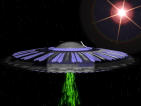brothers and vandals

God bless the Louvin Brothers
Punk rock and hard-core hillbilly music illuminate the Red in my Blue state soul, and provide the soundtrack for a divided country. First, major props today for the Vandals, a SoCal punk band that played a New Years' Eve gig in Iraq. Good move: it may be their war but they're our troops too. They may have the yellow "Support Our Troops" stickers on their cars - paradoxically, always an indicator that the driver supports an administration that won't given those troops enough armor, pay, or respectful attention should they die. It's the war opponents that want our troops to be protected, paid well, and honored when they give the ultimate sacrifice. Guitarist Warren Fitzgerald was unapologetic in the New York Times that the Vandals didn't draw Toby Keith-sized crowds. "You rock out with the band you have," he said, "not the band you wish you had." That's my quote of the day.
Yesterday I listened to a lot of Louvin Brothers. They're the country singing duo from the 50's and 60's who modernized the 'brother harmony' sound of the Delmore Brothers and the Blue Sky Boys. From the heart of fundamentalist Alabama, the Louvins wrote songs of deep Baptist faith and alcoholic infidelity - blending the two into a good reflection of this Janus-like society that can embrace both Pat Robertson and Desperate Housewives. They were brilliant at what they do, crafting beautifully architected harmonies that were the template for Don and Phil Everly and later John, Paul, and George. Their songs, whether gospel or secular, were hillbilly poetry.
Brother Ira was the genius of the group. His high and aching tenor may have been unequaled in country music. "Ain't but two tenors in America," said the ever-modest Bill Monroe, "and Ira's dead." Dead he is, and it wasn't a quiet death. A highly temperamental alcoholic, Ira often inserted extended devout sermons into their songs when not living and writing a cheater's life. After the brothers split bitterly, Ira's wife got fed up with his infidelities and shot him. Younger brother Charlie got the call that Ira had been shot seven times. "Call me back when the son of a bitch dies," he said.
But Ira didn't die then. Some say he gave up drinking and cheating, some say he didn't. Either way, he went on the road as a solo act and died in a car crash shortly thereafter, with the same gun-happy wife at the wheel. With him went the gospel-plus-carnality soul of the act. "While you're cheatin' on me," they sang, "I'm praying for you." "That word 'broad-minded' is spelled S-I-N," they warned. "I take the chance," they said, by betraying the wife "to be with you." "Satan's jeweled crown, I've worn it so long," they rejoiced, "but God for my soul has reached down." "I wish it had been a dream," they lamented, "last night, pretending wrong was right." War supporters - Korean War, that is - they sang, "let us trust and use the weapon of prayer."
A friend and I performed their "Don't Let Them Take the Bible Out of the Schoolroom" at a folk festival workshop on political songs. The audience and other performers howled in protest - everyone else was singing Phil Ochs, Pete Seeger, or Civil War ballads - but it was a political song, and a good one, and we wanted all sides represented. Written fifty years ago, it is contemporary in its Red state vision of Christian theocracy. "Don't let them take the Bible out of the schoolroom, don't let them close the door to your child's heart," it goes. "If it's right to allow liquor in most counties, on the newsstands see the sinful pictures there, if it's right for moving pictures of corruption, Dear God how can it be wrong for prayer?"
That's the perspective of Ira Louvin, the prodigiously gifted artist who used to lose his temper and smash his black mandolin to pieces on stage, years before Townsend or Hendrix came along. Ira, the son of Colonel Louvin Loudermilk of Alabama, had read the Bible backward and forward - but not, apparently, the Constitution. (See Ellen Dana Nagler.) He was the product of his time and place, and to ignore that is to ignore a powerful political reality. That vision is a challenge to Democrats and progressives, for it is built on idealism and spirituality as well as ignorance and fear.
Ira was also capable of something else. His Biblical vision led to the writing of "Love Thy Neighbor As Thyself," with this verse: "Why, I remember two old guys near the farm where I lived/and I wish everyone could live the way they did/they'd swap out work and lend each other money, mules, and plows/and many's the time I've seem 'em both take milk from one old cow." Radical vision of agrarian Communism there, Ira. That socialist imagery is Christian in origin, too. How can such a vision be illuminated for the Alabamans of today? Where are the singers, writers, film makers who can meet that task?
Charlie Louvin is alive today. They say he's a right-winger. No surprise there. But the music he made with Ira lives on, uplifting the heart and challenging the Democratic vision. Check it out, but be warned: it's hard-core hillbilly. Speaking of hard core, maybe I'll check out the Vandals, too. I haven't heard them yet, but they - like the Louvins - have a place in my heart. Will I ever stop trying to reconcile these two types of art? Only, as the Louvins would say, when I stop dreaming.
_______________________________
Buy the Brothers
You can get a great starter collection of their secular hits here

